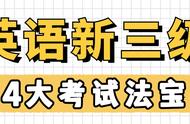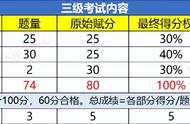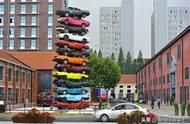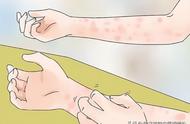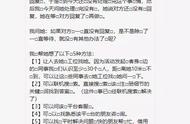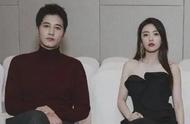小学英语考试技巧与方法
王晓宝
1.英语字母一共有多少个?
答:26个(字母letter)
2.英语字母分为几类?
答:分为元音字母和辅音字母。元音字母有a e i o u, 还有半元音字母y(y在辅音字母后当元音字母i使用,如my,body;y在元音字母前当做辅音字母使用,如yes)
3.辅音字母和元音字母相当于汉语拼音的韵母和声母吗?
答:是的。 英语的辅音字母相当于汉语拼音的声母,而元音字母相当于韵母。而且通常辅音字母在元音前完全可以当声母来读。
4.字母通常读哪两种声音?
答:一种是letter name(名称音,本音),另一种是letter sound,是字母在单词中的发音。
5.在横线(基准线)上写单词,字母需要占格吗?

答:要。g p y f j q尾巴都要在基准线下,其下巴都要触基准线,其他字母要要踩在基准线上,给人脚踏实地的感觉。如果基准线不占格,书写给人凌乱之感。

6.什么是开音节?
答:一般以元音字母结尾的音节就是开音节。开音节分为绝对开音节,如he no me hi,结构为元辅结构 ;相对开音节,如name, lake, like ,结构为元辅(非R)e结构,其中e不发音。开音节功能:单个的元音字母在开音节中发其本音(letter name 名称音)。可以用钥匙e开门来理解开音节。
练习:
1.are at bake bat like lit same mat no not kite kit mute must he heg she shell hi hit bare
以上单词开音节有:______________________________
7.什么是闭音节?
答:以辅音字母结尾的音节叫闭音节,如not , duck ,but, at , bed, it ,观察可知其结构为元辅结构,这个辅音不能为R.功能:单个的元音字母在闭音节中读其短语,可以参考特定单词帮助发音,如a 参考apple, e egg, i it , o dog, u umbrella.可以用无钥匙e不可开门来理解闭音节。
习题:
1. not no me met hit hi are at ate must bus but mute bare like lime
以上单词是闭音节的有:_________________________________
2. 选出元音字母读音不同的一项。
( )A. at B. ate C. name
( )A. et B. bed C. me
( )A. like B. lit C. is
( )A.no B. not C. dog
( )A. us B. but C. use
( )A. are B. lake C. page
( )A. bare B. at C. can
8.名词(顾名思义,万事万物的名字,名万物,万物名)
a. sh, x, ch 或s结尾的可数名词怎么变复数?那么box的复数是?
答:以sh, x, ch ,s 结尾的单词直接加es构成其复数,可以简单记作 蛇(sh)不(x)吃(ch)屎(s)来简单粗暴记忆。所以box复数为boxes。
练习:用单词的适当形式填空。
1. I like _____(dog).
2. There are many _____( box) in my house.
3. I ate a lot of _____(peach) yesterday.
4. There are six _____(bus) near our school.
5.I have two _______( mobile phone).
b.以辅音字母加y结尾的可数名词怎么变复数?那么candy的复数是?
答:辅音字母 y结尾的单词,把y变为i再加es。因此candy的复数是candies,类似单词还有party, family, body, study等。(辅音字母 y结尾的动词单三变法也一样,变过去式也是如此)
习题:用单词的适当形式填空。
1. I like _____(candy) very much.
2. Many ______(family) like afternoon tea.
3. There are two ______( study) in my house.
4. There are three_____(baby) in her home.
c.以O结尾的可数名词,如果是有生命的,加es还是s?那么photo和potato,tomato的复数分别是?
答:有生命 es,无生命 s。photo照片,无生命,所以直接末尾加s成photos,而tomato西红柿, potato土豆是有生命的,因此加es成tomatoes, potatoes. 那么zoo动物园, piano钢琴的复数你会吗?
练习:用单词的适当形式填空。
1. I like _______( tomato) very much.
2. She has a lot of ________ (photo) in her box.
3. The farmers plant ________(potato) in spring.
4. There are many ______(piano) in the hall.
5. There were two _______(zoo) near our home.
d.单复数同形的可数名词有哪几个?
答:有sheep, fish, police, people, Chinese等。
练习:用单词的适当形式填空。
1. There are a lot of _______( sheep) on the farm.
2. Three _______(police) walking in the street.
3. There are three _______(people) in my family.
4. There is a ________( sheep) on grandpa's farm.
5. There were a lot of ______( fish) in the river six years ago.
e.如果一个可数名词以f或者fe结尾的话,怎么变复数?那么scarf和knife的复数是什么呢?
答:把f变v然后加es。 因此scarf的复数是scarves, knife的是knives,还有leaf树叶的复数leaves,yourself yourselves.
练习:用所给词的适当形式填空。
1. Sheep like to eat ______( leaf).
2. There are many red ______( scarf) in the desk.
3. There are two _______( knife) in the box.
4. The police caught three ______(thief) yesterday.
g.单个的不可数名词在一般现在时的句子中做主语的时候,那么动词是用单三还是原形?
答:单个不可数名词当单数处理,因此要接单三形式动词,如Water is clean。但是多个不可数名词在一起算是复数 Water and milk are good for us。
练习:用所给词的适当形式填空。
1. There____(be) a lot of water in the bottle.
2. There _____( be) much milk and a lot of water.
3. Bread_____(be) very good.
4. The food____(be) delicious.
5. Milk____( be) in the bottle.
h.可数名词的复数构成和单三动词的构成方法是否一样?
答:规则基本一致,如sh x ch s 结尾的名词和动词都是直接加es,辅音字母 y则都是把y变i在再es,如fly的单三flies,party的复数parities。
练习:用所给单词的适当形式填空。
1. The bird_____(fly) in the sky.
2. We will have a lot of ______(party) next year.
3. I like to read______(story).
4. There are a lot of big ______(city) in China.
5. Alice _____(try) to learn English well.
6. The boy _____(cry) every day.
7. The boy _______(play) football at school.
8.Mom_____(stay) at home every weekend.
9.There are twenty ____(boy) in our class.
10.He has a lot of ____(toy) in his box.
11.There are seven______(day) in a week.
9.名词所有格's和s'
a. 以s结尾的名词所有格是加's还是'?那么teachers的所有格是?
答:以s结尾的名词加( ' ),因为teachers以s结尾,所以其所有格是直接加 ’为teachers'.
练习:翻译下列短语。
1. 男孩们的足球________________
2. 教师们的办公室________________
3. 女子百米赛跑______________
b.如果不是以s结尾的名词的所有格是加's还是s'?那么children的名词所有格是?
答:不以s结尾则在名词末尾加's, 因为children不以s结尾,所以其所有格为children's.
练习:选择。
1. Today is_______(Teacher's /Teachers') Day.
2. ________(Children's/Childrens') Day is coming.
3. This is _____(Alice's /Alices') book.
c.如果表示共同拥有的,那么把哪一个名词变成所有格呢?
答:表示共有的时候,直接在末尾的名词上加所有格。
如 This is Tom and Jim's room.
练习:翻译
1. 这是爸爸和妈妈的卧室。
______________________________________
2. 这是爱丽丝和苏南的学校。
_________________________________________
3. 她是王正和王梓的妈妈。
__________________________________________
d.如果表示分别拥有,那么是把名词全部加所有格还是给某一个加所有格呢?
答:如果表示分别拥有,顾名思义,那么就每个名词分别加所有格。如These
are Tom's and Jim's rooms.
练习:翻译。
1. 这些是爱丽丝和刘朝阳的书。
_______________________________________
2. 这些手机是爸爸和妈妈的。
________________________________________
10.of的所有格
a.of的单词意思是?
答:of的意思是: ...的。
b. of的所有格和's或者'的所有格有什么不同?
答:s' 或's是有生命的所以格,但是of是无生命的所有格。
练习:翻译下列句子。
1. 这是中国的地图。
__________________________________
2. 这是爱丽丝的书包。
______________________________________
c.of的所有格怎么翻译?是逆译还是顺译?比如A of B怎么翻译?
答:of所有格是逆译,也就是从后往前翻译,因此A of B 翻译为 B的A, 如 the map of China.中国的地图。
练习:翻译。
1. 这是学校的大门。
____________________________________
2. 这是我们学校的名字。
_______________________________________
11.代词
a.主格代词分别是哪几个?
答:主格代词主要有you I we she he it they
练习:
1. He is a student. (改为复数句)
______________________________________________
2. _______(my) am a doctor. (用所给词的适当形式填空)
b.主格代词一般放在动词前面还是后面?
答:主格代词一般放在动词的前面。如He is a boy. He likes cats.
练习:连词成句。
1. a he doctor is
______________________________
2. does well in English he
________________________________________
b.宾格代词分别是哪几个?
答:宾格代词有 you me us her him them it .
c.宾格代词一般放在哪两种词性后面?
答:宾格代词一般放在动词或介词之后,构成动宾短语或介宾短语,如 like them, care for her.
练习:用所给词的适当形式填空。
1. I play football with ______(she).
2. I like _______(they) very much.
3. My mom looks after ______(he) very well.
4. Please look at _____(I).
5. What about _______(we)?
d.形物代(形容词性物主代词)有哪几个?
答:your my her his its their。
e.形物代一般放在名词的前面还是后面?
答:形物代意思都是...的,不单独使用,因此其本质上是形容词,所以放在名词前。如my dog, her name, its nose 等。(使用口诀形物代是胆小鬼,出门要有名词陪)
练习:
一、用所给词的适当形式填空。
1.This is _____( we) new house.
2.What's ____( you) name?
3._____( he) name is Liu Zhaoyang.
4. Alice is _____(I) name.
5. This is _____( she) book.
6._______(they) books are in the desks.
f.名物代(名词性物主代词)有哪几个?
答:yours mine his hers its theirs.
g.名物代后面能直接跟名词吗?
答:名物代本质上就是名词,意思完整,所以其后不再跟名词。名物代=形物代 名词。(使用口诀:名物代是独行侠,独身有人闯天涯)
练习:单选题。
1. This one is her book, and the other is _____.
A. my B. I C.mine.
2. These books are ________.
A. they B. them C. theirs
3. My hair is long, but_____ is short.
A. she B. her C. hers
4. This book is mine, and that one is _____.
A. you B. your C. yours
5. Their books are old, but ______ are new.
A. we B. us C. ours
12.指示代词this和that。
a. This和that哪个指的在空间和时间上比较近?
答:this 是这个,that是那个,汉语中这个指较近的,那个指的是较远的,因此this 和that与汉语一样。
c. This和that的复数分别是?
答:this these; that those.
练习:
一、把下列单数句改为复数句。
1. This is my house.
_____________________________________
2. That is my book.
________________________________________
二、把下列复数句改为单数句。
1. These books are not old.
___________________________________
2. Those are our houses.
____________________________________
d.打电话是this指的是我还是that指的是我?
答:打电话是这边和那边通话,因此自报家门要用this,表示我是谁This is...,如This is Alice speaking. 我是爱丽丝。问另一方用that,Who is that?你是谁?
13.反身代词
a.你知道哪几个反身代词?
答:反身代词就是第一二人称形物代后加self(自己,自我),如myself, ourselves; yourself, yourselves. 而其他的是直接在宾格形式her him it them后加self或其复数selves,因此是herself, himself, itself, themselves.
b.观察可知单数的反身代词都是以哪个单词结尾的?
答:都是self结尾的,如myself, yourself ,itself 等。
c.self的复数是?
答:单词以fe或f结尾复数是把f变为v再加es,因此self的复数为selves。
d. by加反身代词表示什么意思?那么你会翻译I learn English by myself吗?
练习:用所给词的适当形式填空。
1. I can cook by_______(I ).
2. She learns Math by _____(she)
答:by是依靠,凭借的意思,因此by oneself表示靠自己,所以I learn English by myself 是我自学英语。
14.疑问词
a.你学过的疑问词有哪些?
答:what, who , where, whom, whose, how, when
b.疑问词在连词成句中排第几名?
答:小学阶段在句子中放在句首,当然是排名第一。
练习:连词成句。
1. he what do does the weekend on
______________________________________________
c.你知道who的宾格是谁吗?
答:whom
d.你知道who的名词所有格是谁吗?
答:whose
练习:
_________home is it?
A. whose B. Whose C. Who
e.你知道whom的主格是谁吗?
答:who
_____ did you go to Beijing with last summer holiday?
A. Who B. Whose C. Whom
15.不定代词(顾名思义,就是表示不确定的东西或事物或人的代词)
a. Some和any分别用在什么句子之中?
答:一般情况下some 通常用在肯定句中,any用在否定句和疑问句中。
练习:
1.There is_________( some/any) water in the bottle.
2. I have ______( some/any) toys in my box.
3. Are there_____(some/any) books in your study?
4. She does not have _____( some/any) friends.
b.疑问句中什么情况下要用some而不有any?
答:在表示请求,或想得到肯定回答的疑问句中,要使用some,如:
May I have some water?
May I ask you some questions?
Would you like some water?
练习:
1. Would you like __________(some/any) juice?
2. May I ask _____(some/any) questions?
3. May I have______(some/any) milk, mom?
c. Some和any 后要跟可数名词的复数形式还是单数形式?
答:some和any是同义词,其后要接可数名词的复数形式。但是也可以接不可数名词。any 和some虽然是同义词,但是any有“任何”的意思,而some没有。
练习:
1. Alice has some ____(book) in her school bag.
2. I don't have any______(car).
d. Many后要跟名词单数形式还是复数形式的?
答:many后只接可数名词复数形式。如many dogs, many pupils.
练习:
1. She has many _________( friend) at school.
2. There are many ______( book) in my study.
e. Much后要跟可数名词还是不可数名词?
答:much后要接不可数名词,如much money, much water.
练习:
1. There is_____(much/many) water in the bottle.
2. I have ______( much/many) food for dinner.
3. Alice has_______(much/many) money.
4. There is _______(much/many) good news today.
f. too much, too many,much too 如果出现在题中的话,应该怎么样操作?
答:直接分别砍掉too much, too many, 的前一个单词,剩下的much, many怎么用就怎么用。
练习:
1. There are __________(too many/too much) apples.
2. You play_________(too many/too much) computer games.
g. Each和every后要加可数名词复数形式还是单数形式?
答:因为each和every都是表示“每个”,所以都要接单数名词,如each day, every day
练习:
1.Every ____(day), I want to do well in my study.
2. Teachers should love each_____(student).
16.冠词(张冠李戴,因此冠词是帽子,名词是秃子,秃子需要戴帽子)
a.冠词有几个?
答:有三个,分别是a an the(也可以说有四个,在加上零冠词)
b.冠词分为哪几类?
答:分为三类,即不定冠词an a, 定冠词the和零冠词。
c. a useful book还是an useful book?
答:如果一个单词中首字母u读其本音则要用a,所以a useful book 是正确的
练习:
1. This is _____(a/an) useful book.
2. I saw Mr. Zhao ______(a/an) hour ago.
d. An umbrella 还是 a umbrella?
答:an umbrella.读音的时候如果是元音开头,则要用an。也可以粗略的说一般以元音字母开头用an,但是有特例,如hour, useful等。
练习:
1. There is ____(a/an) apple on the desk.
2. There is _____( a/an) big apple on the desk.
3. I have _____( an/a) eraser in my box.
4. I have _____(a/an) small eraser in my box.
5. It is ____(a /an) good book.
d. an hour 还是a hour?
答:因此hour中h不发音,可以看做是h不存在,那么hour就是our,our是元音字母开头,所以是an hour。
练习:
1. You have ____( an/a) hour to do your homework.
c.冠词能和my等形物代或some ,any成为好朋友吗?
答:不是好朋友,而是敌人,遇到一起你死我活。所以千万不能说my a dog等。
d.定冠词a an the能放在三餐( Breakfast, lunch, dinner)前或者是球类运动(football 等)或学科(English)前吗? 那么play the football这种说法对吗?
答:a an 和the不放在一日三餐,学科和球类运动前。所以play the football 是错误的,正确的是play football. 不用冠词也要零冠词。
练习:
1. I like to play ______(the football/football).
2. Playing ______(the basketball/basketball) makes me happy.
3. I have dumplings for ______( the lunch/lunch).
e.演奏乐器的时候,定冠词the和乐器类名词是不是如影相随,形影不离呢?
答:是的。因为操作乐器前你得调音定音,可以把the当做定音的工具。
练习:
1. He likes to play _____(the piano/piano).
2. Alice enjoys playing _____(the erhu/erhu二胡).
f.你的名字前面加定冠词the吗?那么China前加定冠词the吗?
答:不加。因此China也不加冠。所以一般情况下,专有名词不加冠。
g. the 姓氏复数表示什么?
答:the加姓氏复数表示一家人,如The Greens格林一家人。
练习:
1.The Whites often ______( go/ goes) to Beijing in summer.
2. The Greens usually_____(be) home on Sunday.
h.冠词如何用?
答:定冠词,可以从定冠词这个名字来讨论用法。定冠词,顾名思义是给确定的东西加冠。比如我说太阳,你肯定确定我说的是哪个太阳,所以太阳是确定的东西,所以太阳sun要加冠the sun.
反之,如果一个东西不确定,就用不定冠词。(不定冠词,顾名思义,不确定)
练习:
1.Please look at_____(the/a) sun in the sky.
2. I like______(a/the) moon at night.
3. I have a book. _____( A/The) is about English.
4.Look at ____(a/the) man under the tree.
17.数词
a.数词分为哪两类?
答:基数词和序数词。基数词表示数量,而序数词顾名思义表示顺序。
b.序数词前一般情况下需要有定冠词the吗?
答:一般情况下序数词前得加定冠词the,因此the和序数词是形容影不离的。
练习:
1.I was_____( first/ the first) in the boys' 100-meter race.
2.It was ______( second/the second) time for me to come here.
c.基数词-teen表示的数多少?
答:teen表示十几,比如thirteen十三,逆译。再有词汇teen age(年龄) r=teenager青少年(十几岁的孩子)。
d.基数词-ty表示的数是多少?
答:ty表示几十,如thirty三十,正译。
e. hundred 和thousand表示具体的数时候,后加S吗?那么two hundred 和two hundreds哪个是正确的?
答:表示具体的几百几千是不加s,如two hundred,two thousand,但是表示约数时候是要加s,如hundreds of 表示成百上千的,也可以说hundred 和thousand有of时候要加s。
练习:
1. There are three________( thousand/thousand) students at our school.
2. They are six__________(hundreds/hundred) yuan.
f.你知道hundreds of或者thousands of是什么意思吗?
答:hundreds of表示约数成百上千的..., thousands of成千上万的...
练习:
1. There_______( hundred/ hundreds) of books in our school library.
2. There are three _______(hundreds/hundred) books in our library.
3. There are __________(thousands/ thousand) of fish in the river.
4. There are three (thousands/thousand) fish in the river.
g.序数词除了第一第二第三,其他的序数词都是以哪两个字母结尾的?
答:-th。
h.如果把基数词几十几变成序数词,那么是把个位数变成序数词呢,还是都变成序数词呢?fifty-one序数词是?
答:只变个位数,因此fifty-one 的序数词是fifty-first。
i.几十的基数词如何变成序数词?比如fifty序数词是?
答:把末尾y变为i再加eth。所以fifty的序数词是fiftieth.
j.你知道0这个单词怎么拼写吗?
答:zero
18.形容词
a.形容词一般放在名词的前面还是后面?
答:名词前(和汉语一致)
b. Well的形容词是什么意思?
答:well是兼有形容词和副词两种词性。 作为形容词是健康的,状况良好的,作为副词是好地。
-How are you?
-I'm ______( good/ well), thank you.
c. Happily的形容词是?
答:形容词的末尾加ly变成副词。因为后缀改变词性。happy-y i ly=happily.
练习:
1. We were _______( happy/ happily) in Shanghai last summer holiday.
2. We played football _________( happy/happily) at school yesterday.
d.单音节(只有一个元音字母或多个元音字母挤在一起的)形容词的比较级,一般情况下在词尾加什么构成呢?
答:加er,比如big bigger, small smaller
练习:
1. He is _______( tall/ taller) than me.
2. The white cat is_______( fat/fatter) than that black cat.
e.单音节(只有一个元音字母或多个元音字母挤在一起的)形容词的最高级一般在词尾加什么构成?
答:加est,如small smallest, tall taller
f.多音节(有多个元音字母并且元音字母不挤在一起的)形容词的比较级和最高级怎么构成? 比如beautiful的最高级和比较级是什么呢?
答:最高级加most, 比较级加more, 如beautiful the most beautiful,more beautiful
练习:
1. My sister is _______( beautifuler/ more beautiful) than me.
g.形容词的最高级必须要加定冠词the吗?
答:一定要。
h.单词只有一个元音字母并且元音字母后只有一个辅音字母结尾的(简称一元一辅)形容词,应该怎么样构成比较级或者最高级?比如fat,big,thin,hot的比较级和最高级分别是什么?
答:需要双写末尾辅音字母,如fat fatter, thin thinner, hot hotter, big bigger.
练习:
1. The apple is ______( biger/bigger) than that one.
2. Alice is _____(thiner/ thinner) than Liu Zhaoyang.
i.辅音字母加Y的形容词的比较级和最高级怎么构成呢?比如heavy,easy,happy和lucky的比较级和最高级分别是什么呢?
答:把y变为i,然后加er,est。 如heavy heavier heaviest, happy happier happiest
练习:
1.Today's rain is ________( heavyer/heavier) thank yesterday's rain.
2. I am the________( happyest/happiest) student in our school.
j. Many和much的比较级和最高级是?
答:many 和much是不规则变法,比较级都是more,最高级是most。
k.good和well的比较级和最高级分别是?
答:good 和well的比较级都是better,最高级best。
l. as …as中间放的的是比较级还是原级?
答:因为as...as表示和...一样,既然没有差异,因此没有比较级,所以用原级。如as big as 和...一样大, as small as和... 一样小
练习:
1. My apple is as_______( big/ bigger) as yours.
2. I am as ________( taller/ tall) as you.
m.than是什么意思?是什么词性?
答:than 是比的意思,是介词,因此其要跟宾格代词。如My father is taller than me.
n.副词的比较级和最高级是否和形容词的比较级和最高级构成一模一样呢?副词的最高级一定要出现定冠词the吗?
答:一样。形容词最高级前必须有the,副词的可以省略。
19.介词
a.介词一般放在名词或宾格代词前还是后?
答:介词也叫前置词,顾名思义,当然是放在名词和宾格代词前了。
b.at是不是用在时间点前呢?
答:是的。at用在几点几分前。如at six 在六点。也可说at用在比一天小的时间单位前。
练习:
1. I often get up______(at/in) seven every morning.
2. Alice gets home _______(in/at) nine after school.
c.in是不是用在大于1天的时间单位前呢?in年in月in季节,你看年、月、季都比一天大。(特例 In the morning, in the afternoon, in the evening)
练习:
1. I had a red bike_____( in / at) 2000.
2. The tree get green ______(in/at) spring.
3. Christmas Day comes _____( at/ in) December.
4. Children's Day is _______(in/at) the sixth month of the year.
答:的确,in用在比一天时间大的单位前,但是in the morning , in the afternoon, in the evening 是例外。
d.是不是on用在等于一天的时间单位前呢?
答:是的。比如on Sunday.还有节日Children's Day也是一天,所以在儿童节用on Children's Day.
e.在左边是on the right 还是 at the right?
答:是on the right. on the left.
f.in加颜色表示什么意思呢?
答:表示穿着某种颜色的衣服。比如the girl in red穿着红衣服的女孩。
g. I'm like my father.这句话是什么意思呢?
答:是我像我的父亲。like 有两种词性,一种的动词喜欢,一种是介词像。
20.介词后要跟动词的什么形式?
答:介词后需要接动名词(动词ing,动词现在分词)
练习:
1. I am good at ______( swim).
2.Alice does well in _______( play) basketball.
3. Tom is interested in _______( write).
4. How about _______(go) swimming.
21.介词后要接代词的宾格还是主格?
答:宾格。如care for me, look at me.
练习:
1. We play football with _____(they).
2. My mother looks after_____( I) very well.
22.连词
a.如果否定句中用的是or还是and?
答:否定句中用or。如I do not like Math or English.
练习:
1. A tiger does not eat vegetables _____(and/or) fruits).
2. I won't use the mobile phone to go on the Internet________( and/or) play games.
3. I love candies______( and/ or) apples.
4. We can use the mobile phone to send messages_______( and/or) make a phone call.
b. because和so在同一句话中能共存吗?
答:不能。因为两个都是连词,如果用在一起就没有主句了。所以只能用一个。
练习:
1. Because it rains today, _____(so/不填) I can not go out to play.
23.动词
a.助动词(do, does, did)后面要接动词的什么形式?
答:动词原形。don't doesn't didn't 后也接动词原形。可以把do does did 看做是照妖镜,动词是妖怪。妖怪见了照妖镜就现原形。
练习:
1. He doesn't______( play/ plays) football.
2. Does your father ______(like) dogs?
3. Did your mother ______(buys/buy) a book for you?
4. My teacher didn't _______(give/gives/gave) us too much homework yesterday.
b.情态动词( Can, could, must, may, might, shall should, will, would)后面要跟动词的什么形式?
答:情态动词后也加动词原形。情态动词也是照妖镜。
练习:用单词的适当形式填空。
1. He can _______( swim).
2. Can your father________( drive) a car?
4. He shouldn't _______(play) football.
5. Will he _______(go) out to play?
6. He must ________(buy) a book.
c.小学到初一阶段to后都跟动词的什么形式?
答:小学到初一阶段,to后只跟动词原形。
练习:
1.He likes to _______(climb) the mountain.
2. My friend hopes to _______(become) a doctor.
3. My dream is to _______( land) on the moon.
4. She wants to ______( learn) English well.
5.Alice tries to______(help) me with my English.
6. His mother asks him to _______(go) home early.
7. She uses the mobile phone to ______(learn) Chinese.
8. I have to _______(study) English well.
d.如果句子之中有be动词的话,该怎么构成否定句和疑问句呢?
答:be后加not构成否定句,be提到句首变疑问句。
练习:
一、将下列句子变为否定句。
1. I am a doctor.
_________________________________
2. He is a good pupil.
_________________________________
3. She is going to Beijing.
_________________________________
4. You are a good teacher.
_________________________________
5. We are at home.
_________________________________
6. It is on the desk.
_________________________________
7.They are playing games.
_________________________________
二、将下列句子变为一般疑问句。
1. I am a doctor.
_________________________________
2. He is a good pupil.
_________________________________
3. She is going to Beijing.
_________________________________
4. You are a good teacher.
_________________________________
5. We are at home.
_________________________________
6. It is on the desk.
_________________________________
7.They are playing games.
_________________________________
e.如果句子之中有情态动词,又该怎么构成否定句和疑问句呢?
答:和be动词一样,也是情态动词后加not变否定句,情态动词提到句首变疑问。
练习:
一、将下列句子变为否定句。
1. She can swim.
________________________________________________
2. She could swim at the age of six.
________________________________________________
3. She will swim next Monday.
________________________________________________
4. Alice should come to school on time.
________________________________________________
5. We shall go shopping tomorrow.
________________________________________________
6.He must have a football.
________________________________________________
二、将下列句子变为一般疑问句。
1. She can swim.
________________________________________________
2. She could swim at the age of six.
________________________________________________
3. She will swim next Monday.
________________________________________________
4. Alice should come to school on time.
________________________________________________
5. We shall go shopping tomorrow.
________________________________________________
6.He must have a football.
________________________________________________
f.如果句子之中既没有情态动词,也没有be动词(简称无情无be),那么又该怎么样构成否定句和疑问句呢?
答:需要助人为乐的助动词do does did 放在句首变疑问句,don't doesn't didn't 放在动词前构成否定句。
练习:
一、将下列句子变为否定句。
1. She plays football on the playground.
________________________________________________
2. I do my homework in the study.
________________________________________________
3. My dad likes to play tennis.
________________________________________________
4. Alice and I play basketball together.
________________________________________________
二、将下列句子变为一般疑问句。
1. She plays football on the playground.
________________________________________________
2. I do my homework in the study.
________________________________________________
3. My dad likes to play tennis.
________________________________________________
4. Alice and I play basketball together.
________________________________________________
g.把肯定句变成否定句或者疑问句的时候,some应该怎么样处理呢?
答:some 变成any.但是当提问的想得到肯定的回答的时候问句中要用some,比如
Would like some water?
May ask you some questions?
练习:
1. I want ________(some/any)books.
2. I do not want _________(some/any) books.
3. She doesn't do _________(some/any) washing at home.
4.She does _________(some/any) cooking in the kitchen.
h.把肯定句变成否定句的时候,并列连词and应该改变成什么呢?
答:and要改为or。
如:
I like dogs and cats.
I don't like dogs or cats.
练习:将下列句子变为否定句。
1. I like vegetables and fruits.
______________________________________________
2. She does do well in Math and English.
______________________________________________
4. He will not use it to play game and read e-books.
______________________________________________
5. His friend can swim and play football.
______________________________________________
i.一个单句里有且只能存在一个动词,那么如果出现多个动词应该怎么处理呢?
答:要在次要动词前加to或变为现在分词,to 加动词原形表示将来,现在分词表示进行。
如 I like to run . I like running. Running is good. To play basketball is interesting.
练习:改错( 每个句子只有一处错误)
1. Play football makes me healthy.
________________________________________________________
2. I like play ping-pong very much.
________________________________________________________
3. My favourite sport is play basketball.
________________________________________________________
4. I use it go on the Internet and learn English.
________________________________________________________
5. He wants go home.
________________________________________________________
6. She hopes travel around the world.
________________________________________________________
7. My dream is become a tour guide.
________________________________________________________
8. Play football is very interesting.
________________________________________________________
24.疑问句
a.一般疑问句开头的第1个单词,往往是其简短回答的第几个单词?
答:一般是简短回答的第三个单词.比如是do 问do答,
如:Do you like dogs?
Yes, I do.
b. am和not有缩写形式吗?
答:am 和not永远不缩写.如no, I'm not.
练习:
1、 Are you a student?(进行否定回答)。
___________________________________________________
2. Are you Alice?(进行肯定回答)
___________________________________________________
c.特殊疑问句也就是由特殊疑问词开头的疑问句能用yes和no回答吗?
答:不能。需要根据实际回答。
d.选择疑问句能用yes和no回答吗?
答:不能。比如问你是男孩还是女孩,总不能回答yes, I am吧。所以直接做出选择即可。
比如 -Are you a boy or a girl?
-A girl.
练习:
1. Are you Alice or Li Shan?(请直接回答)
_____________________________________________
2. Do you like red or blue?
_____________________________________________
3. Which animal do you like, the dog or the cat?
______________________________________________
25.感叹句
a.感叹句用什么标点符号?
答:感叹句当然用感叹号了。
b.如果把感叹句的名词和动词去掉,剩下的最核心的词是名词,那么应该用how还是what?
答:用what. what 名词。
练习:
1. ________( What/How) a nice girl she is!
2._________( What/How) a heavy snow it is!
3. _________( What/How) delicious juice it is!
4. __________( What/How) good grapes they are!
c.如果把感叹句的名词和动词去掉,剩下的核心词是形容词或副词(也就是带的或地的词),那么该用how还是what?
答:用how。how 形容词/副词。其实从词义上也可以区分。what 是什么的意思,而how是怎么。
练习:
1. __________( What/How) beautiful the snow is!
2. __________( What/How) nice my house is!
3. ___________( What/How) happy we are!
4. ___________( What/How) a good girl she is!
5. ___________( What/How) nice the girl is!
d.把一个句子改成感叹句后,能出现very吗?
答:不能。要去掉。如It is very cold.改为感叹句为How cold it is!
练习:将下列句子改为感叹句。
1. She is very beautiful.
____________________________________
2. Alice is a nice girl.
____________________________________
3. It is very hot.
____________________________________
4. We are very happy.
____________________________________
26.祈使句
a.祈使句为什么以动词原形开头呢?
答:因为祈使句说话的对象是you,也就是说祈使句开头本来有个You,但是省略了。you不是单三,所以是原形动词开头了。如Go out!出去!这是对你说的话,完整的句子是You go out.
b.祈使句的主语一般是谁?常常省略掉还是出现?
答:是You.因为是面对面说话,所以通常省略不写。
c.祈使句中如果please出现在句首的时候,其后要有逗号吗?那么出现在哪里的时候需要有逗号?
答:如果please 开头的是不需逗号,但是please在末尾的时候需要用逗号。而且有please的句子中的动词必须用原形,有please就是祈使句。
27.there be句型
a. There be句型表示什么意思?
答:表示有或存在。there be也叫存在句型。
b. There be句型怎么翻译?
答:一般翻译为某处有某物。翻译的时候最好不要在句首有“在”字,不然就是汉语病句无主句。
练习:英汉互译。
1. 这颗大树地下有一只狗。
_____________________________________________________
2. There is a big apple on the desk.
_____________________________________________________
3. 我家有五口人。
_____________________________________________________
4. There are many pupils in the classroom.
_____________________________________________________
c. There be句型和have的区别和联系?
答:There be 是无生命的有,一般是地方有什么;have一般是有生命的有,比如人有什么,拥有什么。
练习:
汉译英。
1. 我有一本书。__________________________________________
2. 桌子上有一本书。______________________________________
3. Alice 有一只小猫。____________________________________
4. 我家里有一只小猫。 ___________________________________
5. 桌子底下有一个足球。__________________________________
6. 她有一个足球。_________________________________________
d. There be句型中,be动词遵循什么样子的原则?
答:主谓一致,就近原则。也就是说be动词和离它最近的那个名词保持一致。
如:
There is a dog and two cats at home.
There are two cats and a dog at home.
练习:
1. There _____(be) three pens and an eraser in my pencilbox.
2. There _____(be) an eraser and three pens in my pencilbox.
3. There_______(be) many boys and girls at school.
4. There _______(be) big tree in front of our school.
e. There be句型中,对于存在或有什么,用什么句子来提问?
答:对于there be的疑问一般用What is (What's) 方位介词 名词来提问。
如:There is (a dog) under the tree.
What's under the tree?
练习:对括号中的部分提问。
1. There is (a bike) under the tree.
______________________________________________________________
2. There are (many bikes) under the tree.
______________________________________________________________
3. There is (a big library and a small playground) in your school.
______________________________________________________________
28.什么是时态?
答:时态包含两个概念。时是时间,时间有现在,将来,过去,过去将来;态是状态,状态有一般状态,进行状态,完成状态,完成进行状态。时间和状态进行排列组合,有16中,因此一共有16种时态。
一般现在时
a.判定一般现在时态的标志词有哪些?
答:一般现在时,顾名思义就是一般情况下发生的动作,什么是一般呢?一般就是通常often,常常usually,always一直,总是,有时候sometimes,每天every day,从不never。所以出现这些单词的时候,就是一般现在时态,需要考虑动词是填写原形还是单三形式。
练习:
1. She often______(do) her homework in the study.
2. She _____( do) her homework in the study yesterday.
3. She will_____(do) her homework right now.
4. Alice______( play) football every day.
5.He sometimes______( swim) in the sea.
b. 以sh ,x ,ch, s结尾的动词如何变单三?
答:和可数名词的复数变法是一样的。都是在sh ,x ,ch, s后加es构成。可以用口诀:蛇sh 不x吃ch 屎s搞定。
练习:
1. She has many _____( box) at home.
2. She had a lot of ______( peach) for dinner.
3. My dad _______( wash) his car under the tree.
4.There are many _______( bus) in Zhidan.
c.以辅音字母加y结尾的动词如何变单三?比如fly的单3是什么?
答:和以辅音字母 y结尾的可数名词的复数变法是一致的,都是把y变为i然后加es。因此fly的单三就是flies。
练习:
1. She often ______( fly) a kite on the weekend.
2. There are many _______(party).
3. She had a lot of _______( candy) yesterday.
4.There are many _________( family) near the sea.
5. The ________(baby) are very nice.
6. She _________( study) English very well.
7. There are many __________( study) in the big house.
d.以O结尾的动词如何变单三?那么do和go的单3是什么呢?
答:以o结尾的动词都在其后加es构成复数,因此do does, go goes.
练习:
1. She often ________( do) her homework in the study.
2. He usually ________( go) home on foot.
e.观察可知单三动词都是以哪个字母结尾的?
答:都是以s结尾的。
f.如果and连接的两个或者两个以上的名词,那么其后用单三动词还是原形动词?比如My mother and I__(am/are) nice 和 Milk and bread__(are/is ) on the desk.
答:and连接的要用动词的复数形式 ,也就是be动词要用are,其他动词要用原形。
练习:
1. My friend and I _______(be)good at English.
2. Water and juice______( be) in the bottles.
3. He and she ______( play) football.
4. She and I ______( read) English in the morning.
5. She _______( sing) songs very well.
6. The dog and the cat ______( be) nice.
g. be动词的单三是谁?
答:be的单三(单数)是is。而且be的复数形式是are。
h.动词的单三构成是否与可数名词的复数构成一致?
答:整体是一致的。都是以sh x ch s 结尾的加es,以辅音字母加y结尾的把y变为i再加es,其他情况加s。但是也有细微的差别,比如o结尾的名词有生命加es,无生命加s构成复数,但是动词以o结尾都加es构成单三。
练习:
1. She took a lot of _______( photo) in Beijing.
2. There are many ________( potato) on the desk.
3. She eats three_______(tomato) for breakfast.
4. There are three______(zoo) in that city.
5. He has two _____(piano) in his home.
6.
i.什么是单三?
答:单三是两个概念,“单(数)”是指数量等于1, “三”指的是he she it这三个单数第三人称主格代词。
练习:
1. My father often _______(play) football on Sunday.
2. My father and I ________( play) football on Sunday.
3. He and I _______(play) football on Sunday.
4. He ______(play) football on Sunday.
5. He and she_______( play) football on Sunday.
6. We _______( play) football.
7. They _______(play) football.
8. Students ________( play) football.
29.一般过去时
a.判定一般过去时的时态标志词有哪些?
答:就是表示过去的时间词汇。如yesterday, ...ago, last..., just now, at that time, before..., in 1991等。
练习:
1. She often_______(play) football on the weekend.
2. She_______(play) football with them yesterday.
3. She and I ______( play) football on Sunday.
4. Alice and I_______(play) football just now.
5. We are_______( play) football now.
6. At that time, we _______(play) football.
b. am和is的过去式是?
答:am 和is的过去式都是was。
练习:
1. I was at home yesterday. ( 变为一般疑问句)
_____________________________________________________________
2. There _______( be ) a car in front of my house just now.
3. I _______( be) at home one hour ago.
c.are的过去是?
答:are的过去式were。
d.如果一句汉语中出现了“得,了,过”表示要用什么时态?
答:得,了,过的出现,那么就要用过去时态了。写作文的时候要把这些字眼圈起来,引起重视,翻译句子也是 一样的。
练习:翻译句子。
1. 我爱你。___________________________________
2. 我爱过你。______________________________________
3. 我在爱着你。 ______________________________________
e. 一般过去时怎么构成?
答:把动词变成过去式即可。时态主要体现在动词上。
练习:翻译
1. I liked English. _
______________________________
2. He played games on the mobile phone.
_________________________________________________
f.规则动词的过去式一般是以哪两个字母结尾的?
答:ed结尾。
g.以辅音字母加Y结尾的动词的过去式怎么构成? Fly是否遵守这条规则?
答:以辅音字母 y结尾的动词的过去式是把ye变为i,然后加ed。如study studied,但是fly是例外,flew。
练习:用所给单词的适当形式填空。
1.Alice _______( study) the stars ten years ago.
2.He often ______(fly) a kite on the weekend.
3. My dad_______(fly) to Beijing last year.
4. My mom ________(fly) to Shanghai every year.
30.一般将来时
a.判定一般将来时的时态标志词有哪些呢?
答:顾名思义,当然是表示将来的时间的单词了,比如tomorrow明天,next....(next week, next...)
b.构成一般将来时的三种句子结构分别是什么?
答:①will 动词原形
②We/I shall 动词原形
③be going to 动词原形(表示打算,准备,计划)
练习:
一、用适当形式填空。
1. Mr. Zhao ____________(go) to Beijing next week.
2. I _______(go) on a picnic with my friends tomorrow.
二、英汉翻译。
1. 我明年打算去北京。
___________________________________________
2. 明天我们计划在公园野餐。
___________________________________________
3. 下个月,我们准备在北京踢足球。
___________________________________________
c. be going to do sth.和will加动词原形有什么区别和联系?
答:区别如下:
①be going to do 比will单词多,可以凑字数。
②be going to do 表示准备,计划,打算做某事,但是will只是表示的是长远的打算。
③be going to do 表示客观迹象表明要发生什么事情,比如黑云压成,表明要下雨,这个时候用be going to do 更贴切,但是will多表示主观上的判断,可以翻译为“要”。比如你要去婆婆家,妈妈不让去。你说我就要去,偏要去。这个时候用will更好。
d. 用go ,come ,leave, start 的进行时是否能表将来?、
答:这些表示瞬时的动作的词,可以用其现在进行时表示将来。比如I'm coming. 我就来。I am going to Beijing.
e.shall是谁的私人定制?
答:shall是We 和I的私人订制,言下之意就是shall 只和we 和I搭配。我们只能说We shall, I shall, 而不能说He shall.
练习:
1. We shall go to Hainan. (变为一般疑问句)。
________________________________________________________
2. I shall go on a picnic in the park next week. ( 变为否定句)。
_________________________________________________________
f.什么是主将从现?
答:也就是when 开头的句子要用一般现在时,而when前面的句子要用将来时态。如I will tell her when she comes back.这是一个非常重要的知识,尤其是上了初中的时候。
g. 如果汉语之中出现了“将,会,要”那么翻译成英语时表示用什么时态呢?
答:用将来时态。所以在作文审题时候,要把这些字圈起来,引起重视。翻译句子也是如此,做题也是如此。
练习:
翻译句子:
1. 我们下个周将去北京。
____________________________________
2. 她明天会去上海。
____________________________________
3. 明年我要去北京。
_____________________________________
31.现在进行时
a.判定现在进行时的标志词有哪些呢?
答:小学阶段只要看到Listen,look , now 开头的句子,那么就表明用现在正在进行时。
练习:
1. Listen! The birds _____________(sing).
2. Look! Boys __________________(play) football on the playground.
3. Now I ____________(look) for my dog.
b.怎么样构成现在正在进行时?
答:be 现在分词。如I am singing.
c.如果动词以e结尾,怎么构成现在分词?
答:如果是一个e结尾,去掉e然后加ing,如dance dancing;如果是两个e则不去掉,如see 的现在分词是seeing
d.动词之中只有一个元音字母,并且元音字母之后只有一个辅音字母结尾的(简称一元一辅),那么该怎么构成现在分词呢?比如swim,run,put的现在分词分别是?
答:需要双写末尾的辅音字母,然后再加ing。如swim swimming , run running , put putting, sit sitting, 但是begin可以作为例外,begin beginning.
32.情景交际
a.当别人夸你的时候,你应该怎么回应呢?
答:落落大方的说Thank you。这与汉语反应不一样。
b.当别人说thank you,你应该怎么回答呢?
答:You're welcome.
c.当初次见面的时候,我们应该怎么说呢?
答:Nice to see you.
Nice to meet you.
Glad to meet you.
d.别人说 How do you do?,你应该怎么回答呢?
答:How do you do?是你好的意思。所以也应该回答How do you do .
e.怎么样问别人的岁数?
答:How old are you?
f.别人说sorry,你应该怎么回应?
答:It doesn't matter.
That's OK.
That's all right.
g.问路或者打破沉默的时候,首先应该说的一句话是什么?
答:Excuse me.
h.当听到别人生病了,你应该说?
答:I am sorry to hear that. 听到这我很难过。
i.临睡前和爸爸妈妈怎么道晚安?
答:Good night.
j.打电话时说我是爱丽丝,应该怎么说?
答:This is Alice . 或This is Alice speaking.
k.打电话时问对方是谁,应该怎么说?
答:Who is that?或Who is that speaking?
l.问别人职业应该问?
答:What be 某人?
=What does/do 某人?
=What is one's job?(job工作)
m.问别人性格怎么样,应该怎么问?
答:What be 某人 like?
如What is she like?
She is very friendly.
也可以用What do you think of sb.?来对某个人或东西的观点。
n.问几点了,应该怎么问?
答:What time is it?=What is the time?
如What time is it?
It is six.
o.问星期几应该怎么问?
答:What day is it?
It is Sunday.
34.阅读
a.什么是题序一致?
答:一般情况下,阅读第一道题的答案往往在文章第一句或第一行里可以找到。以此类推。
35.写作
a.怎么确定作文的时态?
答:看到得 了 ,过,用过去式;看到将 ,会, 要,用将来时;看到常常,经常等用一般现在时;看到正在干什么,在做什么,用进行时。
b.如果是命题作文,答题卡上没有没有印刷标题,我们应该怎么办?
答:在答题卡上再写一遍。
c.如果不是命题作文也没有要求题目自拟,那么应该写标题吗?
答:最好不要写。不然错了会扣分的。不要画蛇添足。
d.作文字数或者句数一般有什么要求?
答:单词数量少于40个,如果是句子不少于5句话。
e.作文要求中出现的“可以适当的扩展”到底是什么意思呢?
答:就是要求表达情感,文以载道。
f.作文中出现提示的内容必须都得用上吗?
答:如果提示中说必须,就必须要有,如果没有说必须,那么最好大部分用上。
g.作文中出现的数字,如果不会英语表达,应该怎么办?
答:如果作文没有要求出现英语数字用单词表达,那么可以用阿拉伯数字。
h.写英语句子的语序应该是什么?
答:谁做什么 怎么做地 在哪里做地 在什么时候做地,按这种顺序书写句子。
i. 汉语句子如何翻译为英语?
答:先把汉语句子进行缩句,然后翻译这个缩句,最后按照谁做什么 怎么做地 在哪里做地 在什么时候做地,按这种顺序书写句子进行添枝加叶。
如:爱丽丝每天在学校开心地地足球。缩句为:爱丽丝踢足球,翻译为Alice plays football.怎么踢地,开心地happily,Alice plays football happily, 在哪里踢地,在学校at school Alice plays football happily at school, 在什么时候踢地,every day , 所以最终的翻译为:Alice plays football happily at school every day.(注意:如果多个时间同时出现的时候,小时间单位在前,大时间在后;如果同时多个地点出现,同样的小地点在前,大地点在后。
练习:翻译句子。
1. 我和Alice 每天在学校开心地踢足球。
______________________________________________________________
2. Alice每天下午六点钟和她的朋友在学校的操场上开心地踢足球。
______________________________________________________________
3.苏南每个周六下午都和他的妈妈去超市购物。
______________________________________________________________
,



